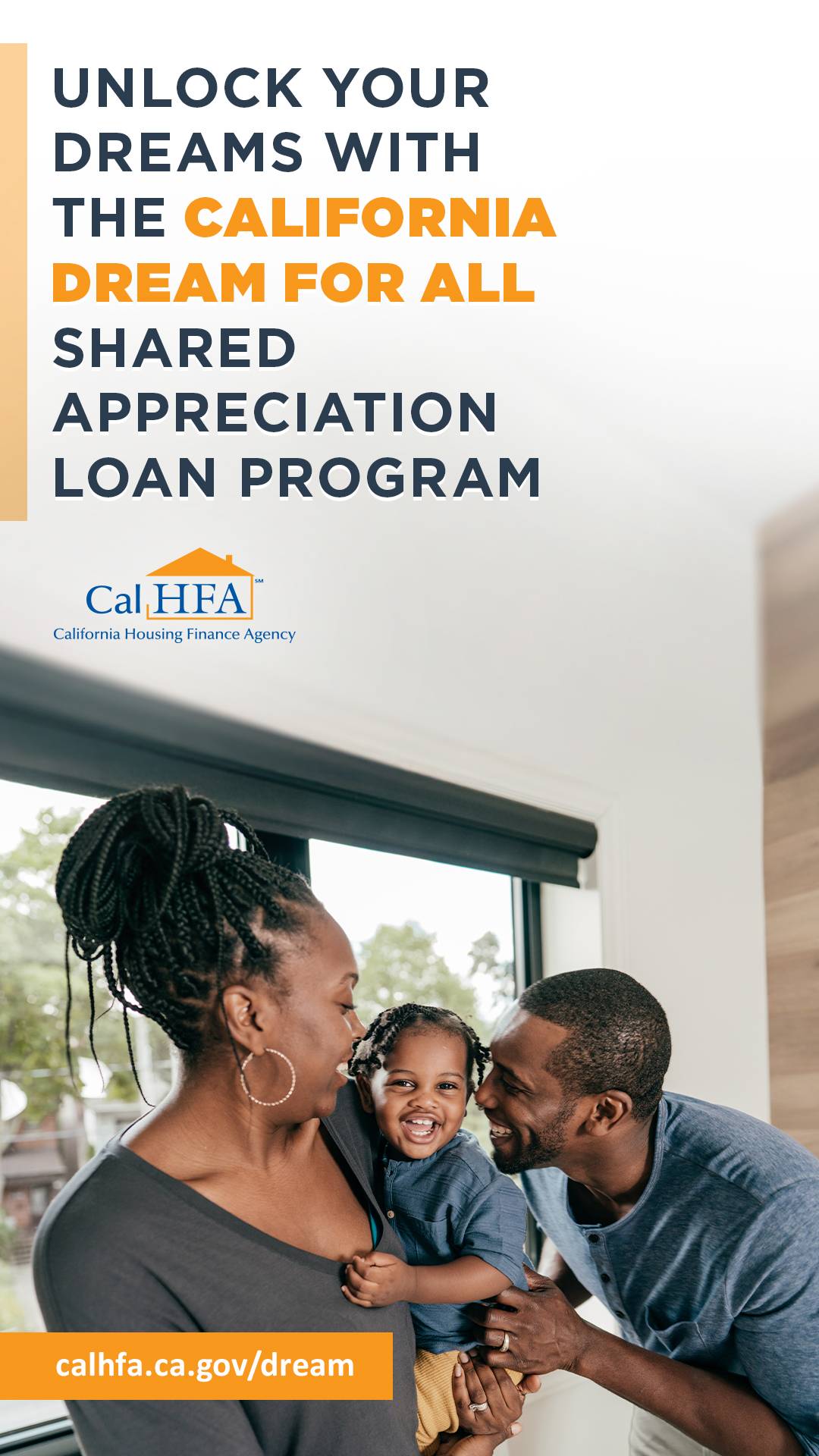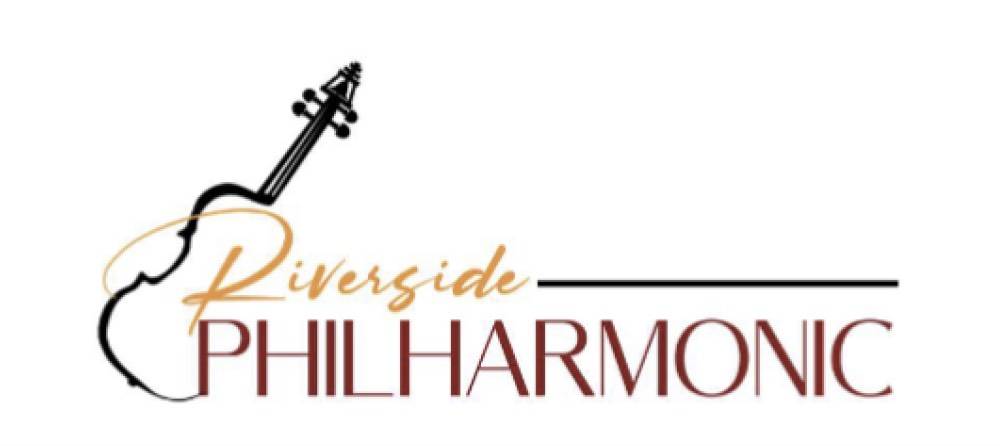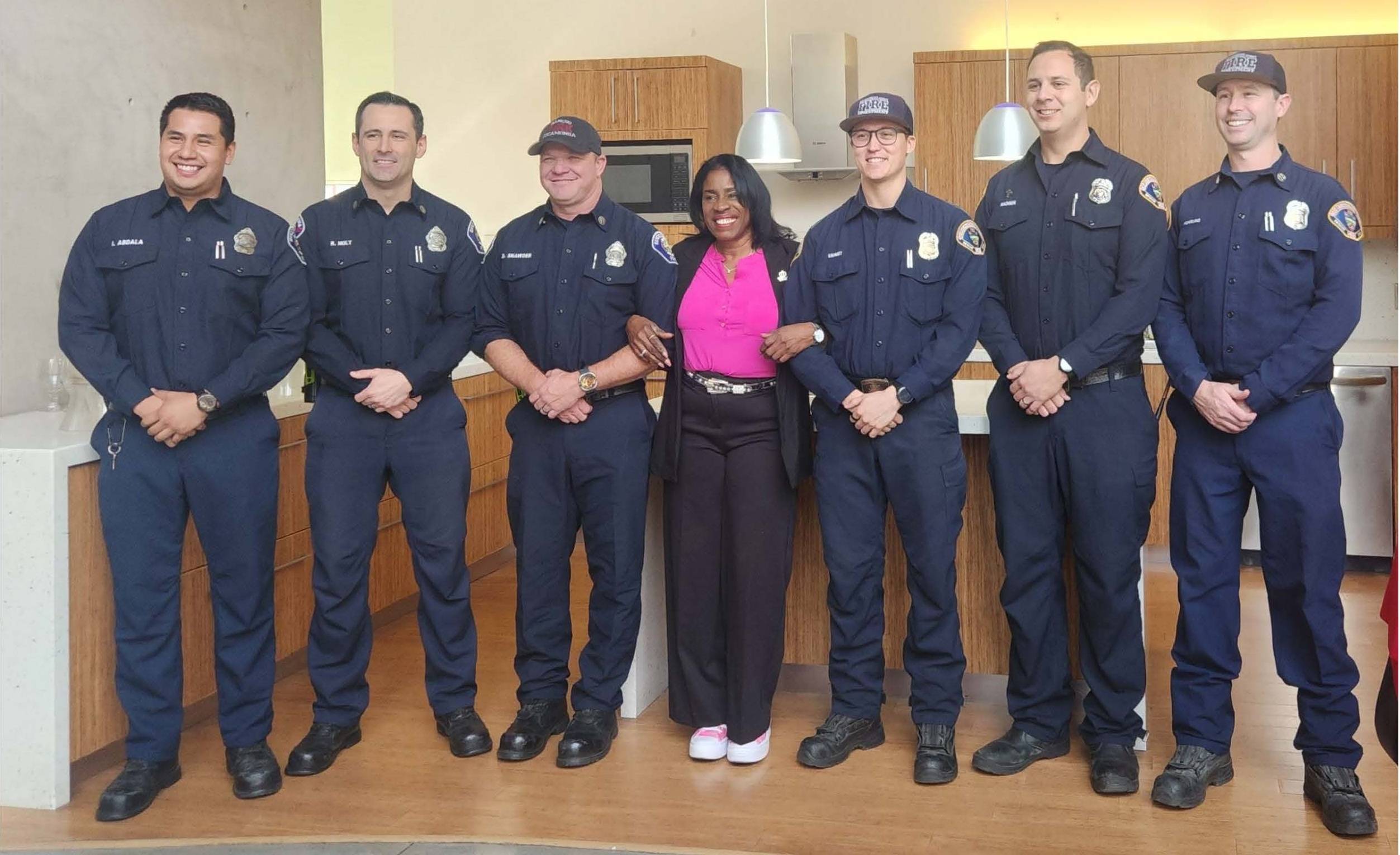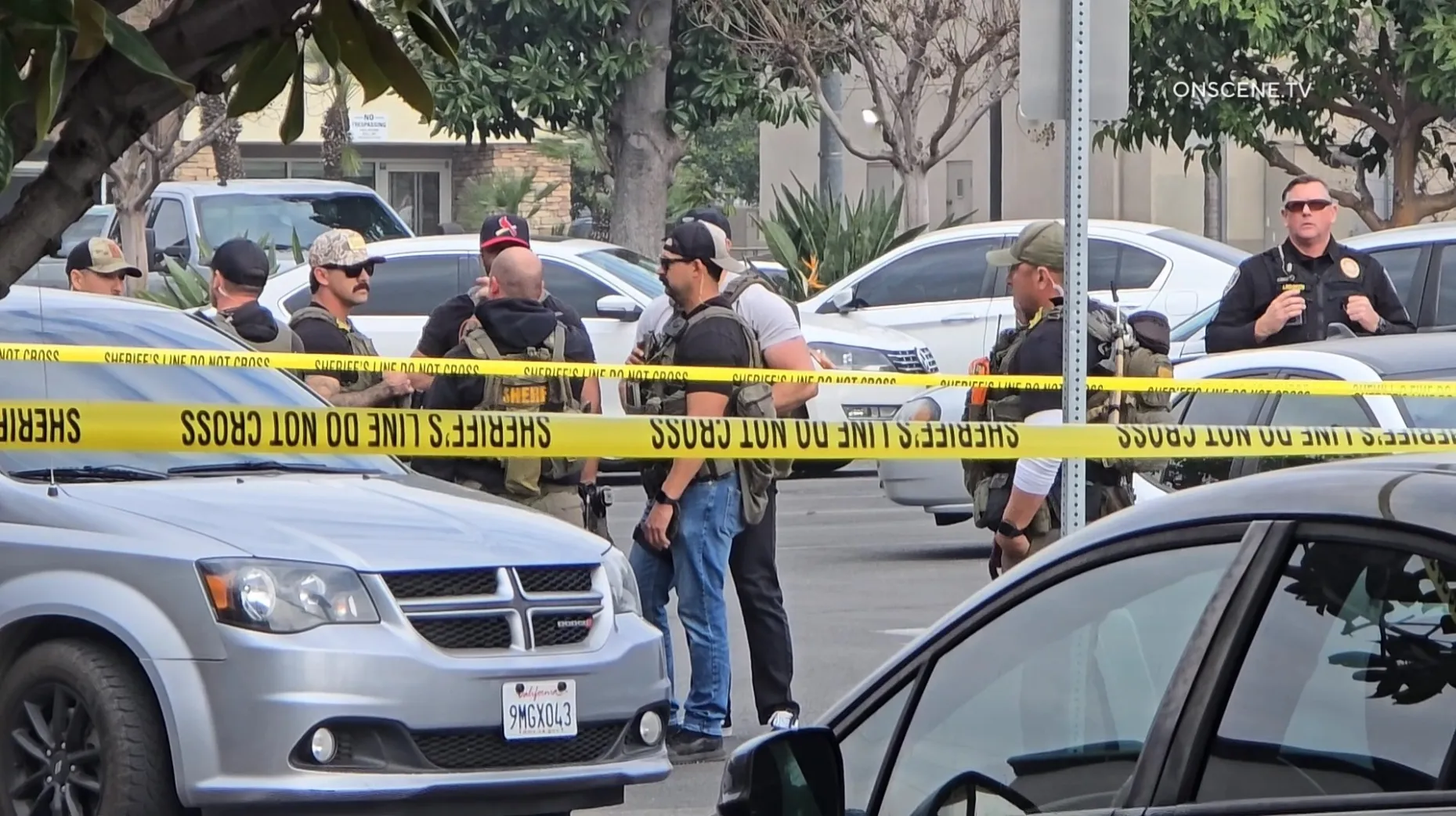Faith leaders, civic officials, and community advocates gather in unity for the official launch of MPAC’s Los Angeles Chapter. The national clergy-led organization aims to advance housing justice, voter mobilization, and equitable policies through collaboration and faith-based action. / Photo by Kenyatta Johnson, IVN
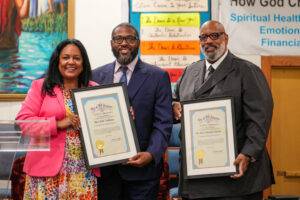
Los Angeles, CA — Faith leaders, elected officials and community organizers filled Concord Church in South Los Angeles on Oct. 30 for the grand opening of the Los Angeles chapter of Mobilizing Preachers and Communities(MPAC), a national clergy-led civil rights organization founded in Harlem in 2010 by the Rev. Dr. Johnnie Green.
The group focuses on engaging clergy in public policy, housing equity, criminal justice reform, voter mobilization, economic inclusion and community defense initiatives.
The evening began with prayer, praise worship and a call for unity across pulpits and neighborhoods.
Local clergy and civic figures were recognized, including leaders from the Southern Christian Leadership Conference ofSouthern California, community organizers and pastors from across the region.
Los Angeles City Councilmember Heather Hutt (D-10th District) spoke on the historical role of Black churches in uplifting communities before and during the Civil Rights Movement.
“In our communities, the church has always been more than a sanctuary,” Hutt said. “It’s been a center of strength, strategy and social change.”
Rev. K.W. Tulloss, former Los Angeles chapter president of the National Action Network and now Western Region Director for MPAC, leads the Los Angeles division.
Tulloss emphasized that the organization intends to take action, not simply hold meetings.
“We will mobilize, we will organize, we will continue to be that voice for our community, the voice for the voiceless,” he said.
Tulloss also detailed plans to expand legal clinics.
Rev. Dr. Johnnie Green, MPAC national president and founder, traveled from New York to deliver the keynote charge,urging faith leaders to stand firm amid what he described as political and social challenges from the federal government.
Green told the audience that MPAC was “born out of a divine mandate to make the church’s voice heard.”
“We didn’t come to start a chapter, we came to strengthen a movement,” he said. His message emphasized persistence in advocacy.
“Where there’s no struggle, there is no progress,” he said.
Green called for coordinated community power across issues such as housing, policing, schools, re-entry, environmental justice and reparations.
“Our mission was to hold on, to transform our community,” he said, highlighting California’s and Los Angeles’ ongoing disparities.
He urged attendees to remember his final directive: “Be strong. You’re going to need to remember that.”
Speakers underscored the stakes of civic participation in California’s upcoming elections.
Dr. Shawna Charles, founder of Charles Communication Group and the event’s emcee, noted the lack of representation of Black people in the state’s legislature.
“There are only 12 Black legislators for the state of California that are fighting for Black issues,” Charles said. “They need help, and they need tons of it.”
The program drew political figures including former Los Angeles Mayor, and candidate for Governor, Antonio Villaraigosa, who briefly addressed the audience.
He echoed earlier sentiments about the importance of civil rights leaders who paved the way for communities of color to actively engage in political discourse.
“I said that when I became mayor that I became mayor because people died for my right to vote,” he said.
Green challenged community members and leaders to “stand up, speak out and show up for justice.”
MPAC leaders connected the launch to past movements rooted in Los Angeles, citing Crenshaw and Adams marches and the tradition of clergy-driven advocacy from the civil rights era to the present.
MPAC has been involved in housing justice efforts in New York, voter organizing, economic equity initiatives and police accountability campaigns.
The Los Angeles chapter plans to coordinate policy advocacy, neighborhood partnerships, youth engagement andtechnology access initiatives, according to MPAC’s national platform and event remarks.
As the inaugural ceremony concluded, attendees contributed offerings to support community legal aid and organizing.
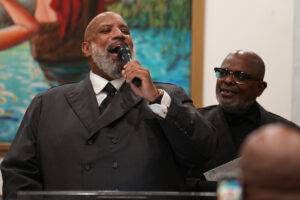
The message echoed throughout the sanctuary: faith-rooted organizing is entering a new phase in Los Angeles.
“We were born for this movement,” Green said. “Justice requires collaboration.”
